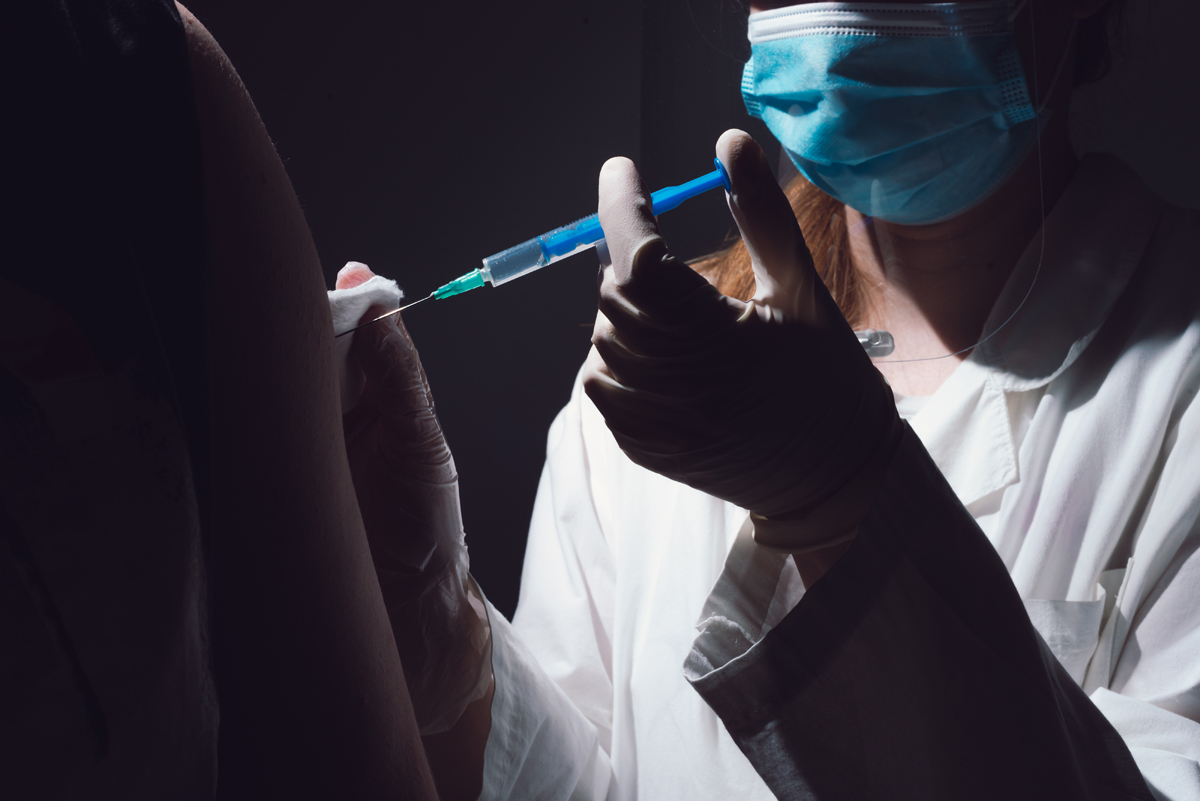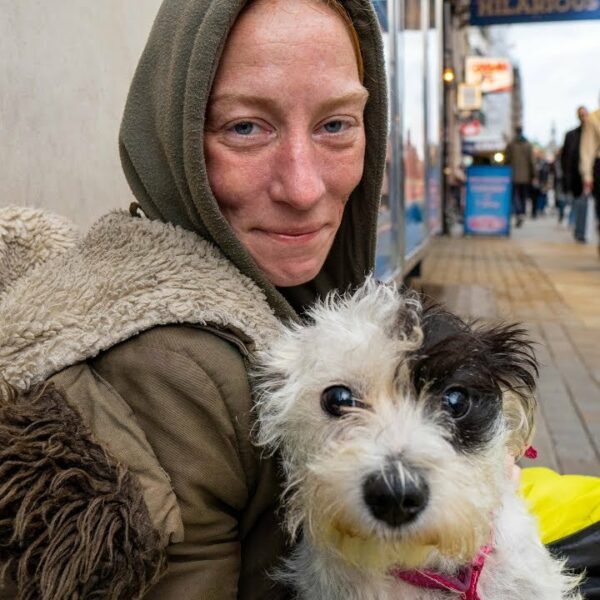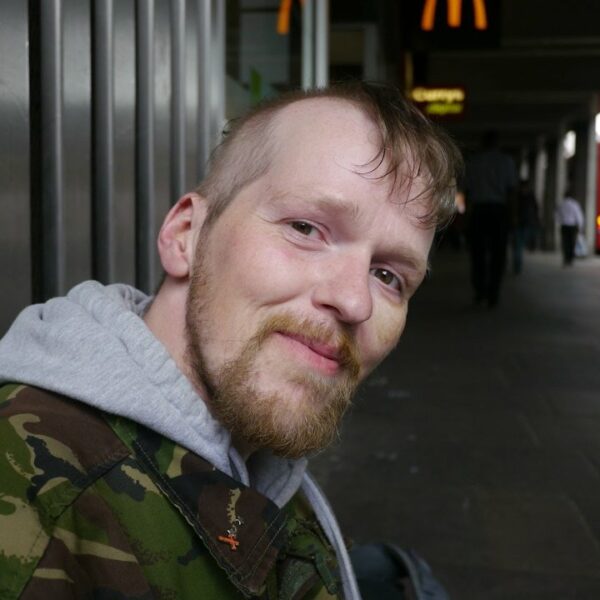During a pandemic, homeless people become even more invisible. However, many advocates and charities in the United Kingdom are on a mission to ensure that the coronavirus vaccine is administered to some of society’s most vulnerable and hard to reach. In many cases, homeless people are also most at risk of contracting COVID-19 due to mobility and inability to self-isolate.
In Wales, one of the four countries that make up the United Kingdom, charities have urged the government to administer the COVID-19 vaccine to people who are homeless or addicted to drugs. The Kaleidoscope Project claims charities have the experience and trust from vulnerable groups like homeless people, who often find it challenging to engage with the United Kingdom National Health Service (NHS.) Likewise, the homeless charity The Wallich has also requested a targeted program for homeless people who face difficulties accessing healthcare.
To ensure the safety of this population, homeless charities should be able to administer the COVID-19 to rough sleepers. Let’s learn how the vaccination process of homeless people is currently progressing in the United Kingdom.
Why Should Charities Administer the COVID-19 Vaccine to Homeless People?
Many rough sleepers trust charities more so than mainstream healthcare providers, especially if they’ve had a bad past experience. Of course, homeless people cannot register for healthcare services without an address, which causes additional problems.
Because they trust charities more, homeless people are more likely to comply with vaccine measures. For example, one challenge to vaccinating homeless people is they doubt its efficacy. Since they already provide intervention care for rough sleepers, when homeless charities offer information on administering the vaccine, rough sleepers are more likely to trust them.
Elwyn Thomas, an outreach worker for The Kaleidoscope Project, claims the charity has already built trust with its service users.
“This is a cohort of people that I know, they trust me, they trust my colleagues with intimate details, with their health care, so these are things that we already do,” he said.
It’s not only trust that makes charities ideal to vaccinate homeless people. Many homeless charities have access to nurses who already have experience providing medical care to homeless people, including injections. Nurses from homeless charities have already provided vaccines for hepatitis B, for example, so they’re used to giving jabs.
Since they already provide medical services to rough sleepers, it makes sense for charities to offer the COVID-19 vaccination.
The Bid
The Wallich has supported the bid from The Kaleidoscope Project. However, the charity’s chief executive Dr. Lindsay Cordery-Bruce said only around 12% of their staff members had been vaccinated.
Staff members working in temporary accommodation environments like hostels should receive the same priority access to the COVID-19 vaccine as people who work in care homes do. Dr. Cordery-Bruce called for the Welsh Government to run a special, targeted program for rough sleepers who have challenges accessing healthcare.
The charity has a fleet of welfare vehicles that could help to ensure the vaccine is provided to homeless communities.
The Welsh Government has noted that health boards and local authorities are working to ensure that vaccinations are offered to every suitable adult, including homeless people.
How Is the Vaccination Process Going in the UK So Far?
Homeless people aren’t listed among the British government’s highest priority groups for the COVID-19 vaccine. Currently, it includes people over 70, front-line medical staff, social care workers, nursing home residents, and the clinically vulnerable.
However, charities are making efforts to ensure that homeless people are offered the vaccine. As homeless people are typically more likely to suffer from chronic illnesses like asthma, heart issues, and stroke, they are a vulnerable group and are more susceptible to contracting a serious case of COVID-19.
People sleeping outside and living in homeless shelters often have no address where doctors can contact them. So, some local authorities across Britain have started sending out vaccination teams to identify the clinically vulnerable among homeless people so they can receive the jabs.
Yet, there has been no clear and streamlined strategy to ensure homeless people receive vaccinations throughout the UK. That means officials in various areas have taken different approaches.
In the outer areas of Northeast London, mobile vaccination teams have provided a vaccine jab to at least 200 homeless and social care workers at two community centers, with the number set to rise.
Meanwhile, in Manchester, the second phase of a vaccination program to protect rough sleepers from COVID-19 is set to begin. It follows after more than 100 homeless people in the city received their first jab as part of the city council’s scheme.
Manchester City Council states it was essential that homeless people are provided the same care as the general population. The council wanted to ensure that no one is forgotten or left behind. As part of the scheme, people living in temporary accommodation and day centers are offered a COVID-19 vaccination jab.
Practices in the areas of Hulme, Ancoats, and Openshaw within Greater Manchester have been used as vaccination centers since January.
Recently, the British Government also encouraged anyone unlawfully living in the UK to register with a doctor to receive a vaccine. The government promised anyone coming forward wouldn’t have their immigration checked or risk deportation.
It is unclear how many people the new policy affects. The last official estimate in 2005 indicated there were approximately 430,000 people in the UK with no legal right to remain.
More than 20 million people in Britain have received at least one dose of a coronavirus vaccine. Officials state they have a set target of vaccinating every adult in the UK by fall.
What Can We Hope for Next?
Various regions of the UK have taken different strategies in vaccinating homeless people. However, a targeted approach to vaccinating rough sleepers is necessary.
Homeless people are a highly vulnerable group not only for contracting COVID-19 but for suffering from the virus severely, as they are more likely to suffer from chronic diseases. Additionally, due to their lifestyle, homeless people are typically older before their time.
While some UK locations have started vaccinating homeless people as a priority, a more streamlined approach must be implemented across Britain so that every rough sleeper is offered the vaccine quickly.
The good news is that there is a strong case of the vaccine being administered directly by homeless charities with appropriately trained staff.













